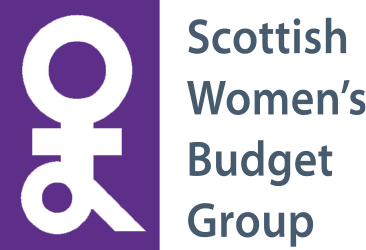A Gender Budgeting Analysis of Scottish Gypsy Traveller Sites
“It’s been 30 years, and nothing worthwhile has been done”
In 2001 the Scottish Parliament’s Equal Opportunities Committee (EOC) published its ‘Inquiry into Gypsy/Travellers and Public Sector Policies”. This inquiry ‘represented a milestone and a crucial step in Scottish politics in relation to Scotland’s Gypsy/Travellers.’1
Since 2001 there have been multiple inquiries and reports produced looking at what is needed to improve outcomes for the Gypsy/Traveller community in Scotland the impact of which are questionable.
This joint project between the Scottish Women’s Budget Group (SWBG) and MECOPP aimed to:
-
explore how local and national budget/policy decisions impacts on Gypsy/Traveller women and their families;
-
identify differences and gaps in public spending for culturally appropriate housing and education for Gypsy/Travellers Scotland wide.
What we did
Desk Based Research
We carried out a literature review of the inquiries and reports published in Scotland since 2001, to identify the key recommendations made about the needs of the Gypsy/Traveller community in Scotland.
Beneficiary Analysis
During February-June 2024 MECOPP organised 7 events across Scotland. Staff from SWBG and MECOPP met with women from the Gypsy Traveller Community in 6 different areas: Argyll & Bute, Forth Valley, Edinburgh, Fife, North Ayrshire and West Dunbartonshire. We spoke with 39 women:
-
21 of whom lived on a site;
-
4 who were living on a decant site;
-
3 who had been decanted to a house while work was ongoing on the site;
-
11 were living in social housing.
Public expenditure analysis
We submitted FOIs to the relevant local authorities and one to the Scottish Housing Regulator. These aimed to understand the way in which budget decisions have impacted on delivering the recommendations about accommodation made in the various reports and inquiries published since 2001.
What we found
Despite the focus on Improving the Lives of the Gypsy/Traveller Community since the advent of the Scottish Parliament in 1999, there continues to be multiple human rights breaches experienced. These include inadequate and poor standards of accommodation, direct experiences of discrimination, failure to safeguard children’s rights to play and to an education and lack of adequate participation.
It is clear from this research that despite many reports, inquires and actions plans improvements are not being felt by women in the Gypsy/Traveller community in Scotland. A significant factor in this is that recommendations from these reports, inquires/action plans are not being followed through within the budgetary process.
The most recent version of ‘Improving the Lives of Scotland’s Gypsy/Travellers’ provides another example of how the actions set out are not linked to funding. Nor are there clear indicators set which will allow proper accountability mechanisms to ensure that actions taken lead to positive changes.
Without clearly linking the outcomes needed to improve the lives of Gypsy/Travellers to the budget process, and through this identifying investment needed, it’s unlikely that the structural and systemic changes needed to address the inequalities experienced by the Gypsy/Traveller community will take place.
A copy of the full findings can be found here.
In this section
Mailing list
To join our email list, simply enter your email address below.
